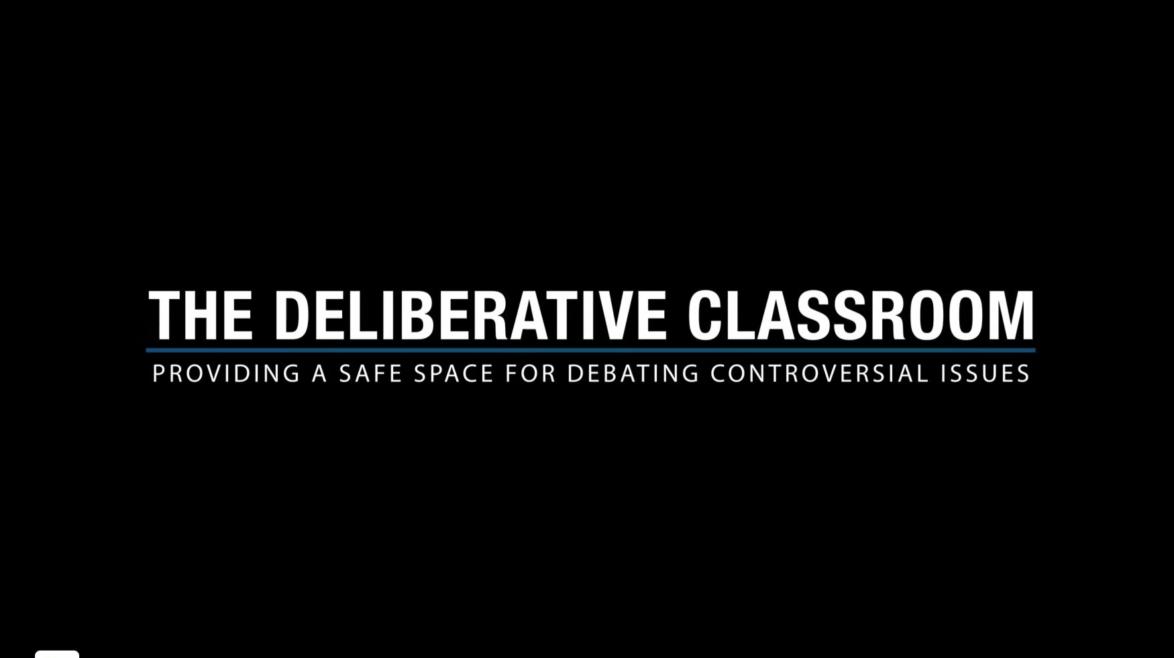The Deliberative Classroom project
Key stage 3 (ages 11-14) • Human Rights • Deliberative classroom
What is the Deliberative Classroom?
The Deliberative Classroom is a project to support teachers in leading knowledge-based discussions and debates with students on sensitive and controversial topical issues. The project supports teaching about topics related to the DfE fundamental British values – democracy, the rule of law, individual liberty, and mutual respect for and tolerance of those with different faiths and beliefs, as well as equality and citizenship.
Deliberation is an important citizenship pedagogy that promotes a more balanced approach to discussion and debate in classrooms. The pedagogy is particularly useful when teaching political and sensitive issues and planning how to remain impartial. It draws on the approaches used in real democratic forums, such as citizens’ assemblies, juries and parliamentary committees.
What does the project include?
- A general guidance booklet for teachers, with advice on leading knowledge-based debates on sensitive and topical issues, and links to curriculum subjects.
- A debate resource pack and a student resource pack on the topic of ‘Religious Freedom’ that includes a teacher topic briefing, and lessons.
- A debate resource pack and a student resource pack on the topic of ‘Democracy, Protest and Change‘ that includes a teacher topic briefing and lessons.
- Ten classroom activities to encourage democratic talk, including different kinds of debate, exploratory discussion, deliberation and simulation.
The lessons and activities in the resource packs and illustrated in the films are designed for key stage 3 pupils. They link to Citizenship, RE, History and English.
The debate resources can help build students’ resilience by developing knowledge to support increasingly independent critical thinking about the challenges the UK faces as a complex and changing democracy. They have been written and developed by the Association for Citizenship Teaching (ACT), Middlesex University and the English Speaking Union (ESU).
The project was developed with support from the Department for Education (DfE).





